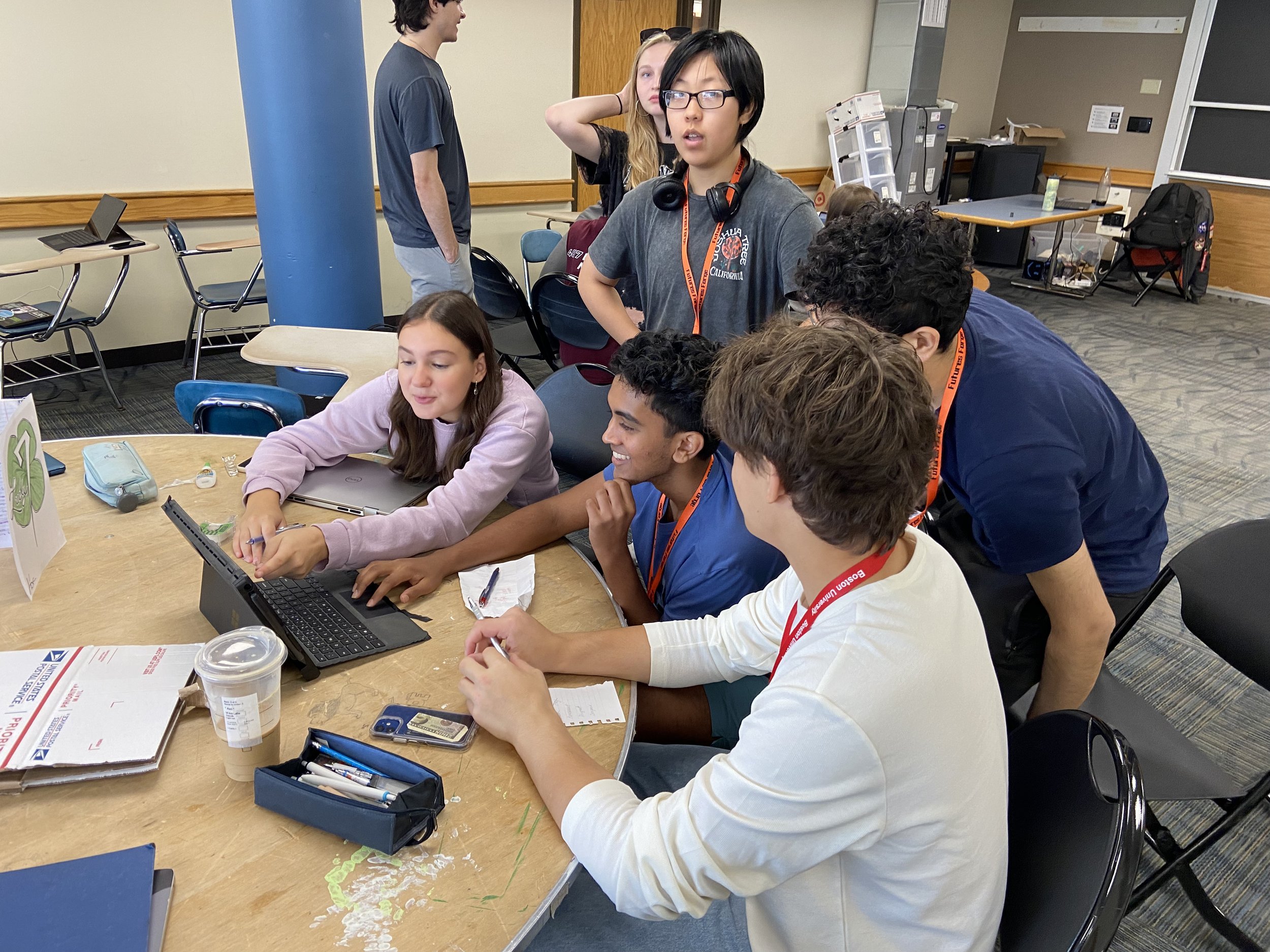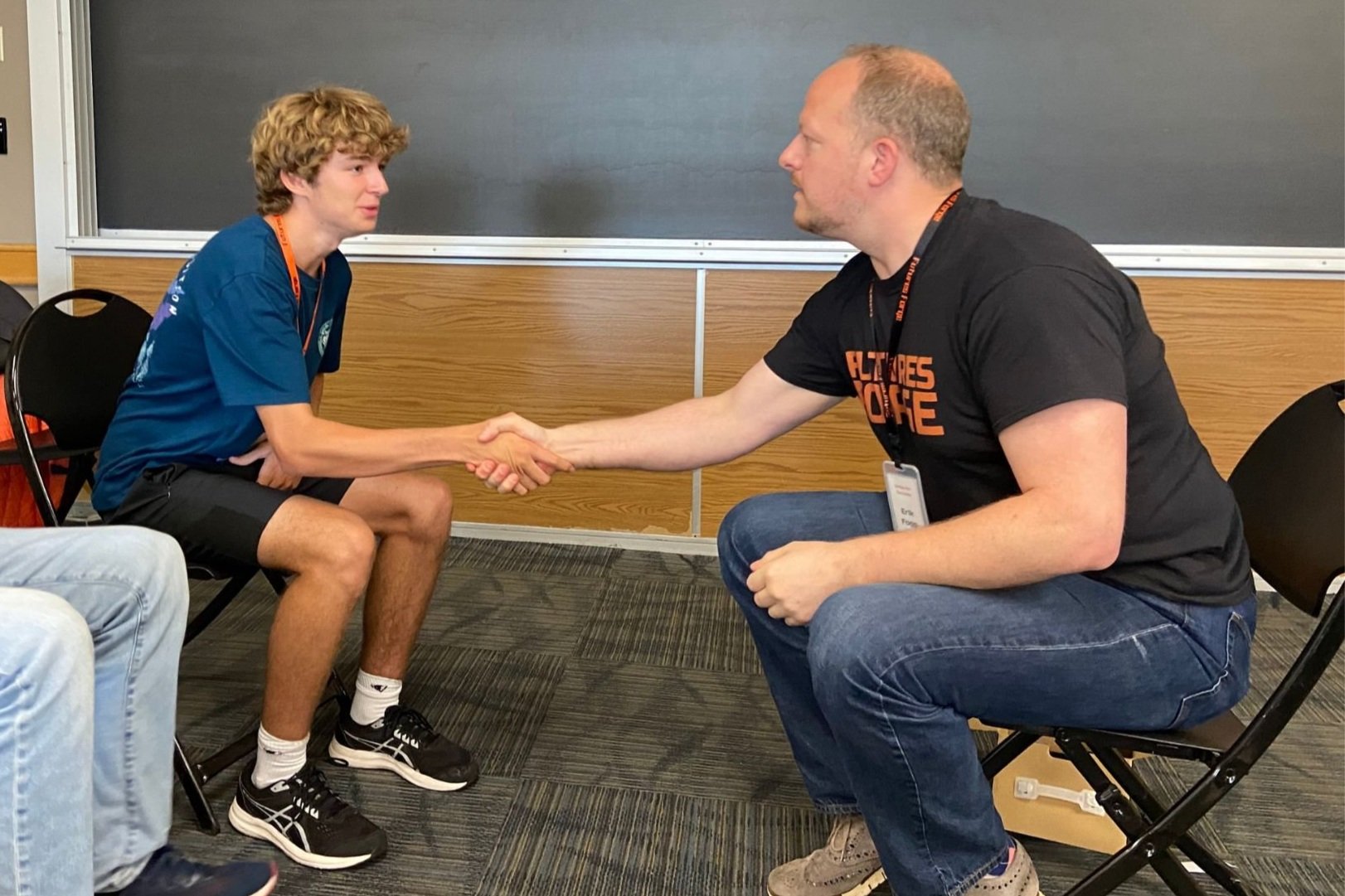
Futures Forge Blog
Founders and facilitators share their insights about personal development and growth, college and careers, and some inside looks into the science behind Futures Forge. Subscribe to receive updates in our newsletter digest.

Will Yale Young Global Scholars Help You Get Into Yale?
(Or any Ivy school?) Let’s cut to the chase: nope.
How do we know that? And what are the implications?

Feedback is your secret weapon for rapid self-development: Part 2, How to Get Lots of Feedback
From part 1, you know that feedback is critical to becoming your best self, and that most of us have an aversion to receiving constructive feedback, likely taught to us in childhood.
The first step to overcoming this aversion is to just pay attention to yourself. Sense your aversion to asking for feedback, or a certain amount of defensiveness in yourself when either getting it or thinking about asking for it. Once you notice this, remember it was trained into you by school and members of higher authority. Identify ways that feedback has helped you improve, and what power the data from feedback represents for you.

Feedback is your secret weapon for rapid self-development: Part 1, Why We Need It But Avoid It
Many ambitious students ask their mentors, coaches, or role models for advice, hoping to uncover the secrets to success. These students are typically high achievers, excelling in school and striving to get ahead of their peers. Their mentors may give actionable tips–like “setting clear goals” or “creating a study schedule”.

Students Are Missing a Key Element in Maximizing Their Growth - And It’s Easy to Do
Students face challenges, solve problems, and navigate complex interactions every day. Yet most move through these experiences without pause–completing tasks, resolving issues, or having tough conversations, only to move on without much thought. Top performers take a different approach. They intentionally set aside time to reflect, analyze their actions, and learn from their experiences–this is their secret weapon to getting 10x more learning and growth out of everything they do.

Being Late Is a Great Lesson in Developing Responsibility
Most teachers we know complain that students are constantly late. One thing we’re finding is that teachers are inadvertently encouraging this behavior. When students are late, we typically see one of three responses:
Shame: “You're late. Take your seat, and we'll talk after class.”
Letting it slide: “Glad you could join us. Let’s get started.” (Or many simply don’t acknowledge it)
Preventing it: Calling everyone in from the hallway with one minute left.

How To Choose Extracurriculars That Will Actually Make a Difference
Students in the U.S. have a plethora of options when it comes to picking up extracurriculars: there’s debate classes, coding clubs, mentorship programs, and endless other options. Ambitious students seek extracurriculars they think will make a difference in their college application and success, whether through the experience, “prestige,” or networking opportunities.

How Should You Learn a Foreign Language?
I studied Chinese for eight years in high school and college. Eight long years of coursework, memorization, drills, and exams. Guess how much Chinese I learned? About as much as I learned German in five months, spending just 30 minutes a day.

Should You (Want to) Attend MIT?
Yes, if you’re MIT-smart. Certainly, the MIT brand does a lot for you, and it is a tragedy that one has to slog through 4 years of university to prove one is smart, when the university admissions officers can already decide whether you’re smart before you show up. But in our current reality, graduating from a top university confers the brand, and it will help you.

Why Are Some Universities More Prestigious?
When people find out I’m from MIT, they immediately respect me more. And they should; they have verification that I am smart and that I work hard. This is worth respecting, certainly. But did I learn anything while I was there? You don’t know whether I did. At all. And very rarely has anyone ever asked me whether I did.

Students Are Asking For The Wrong Advice From The Wrong People On Their College Applications
Enough Futures Forge students have asked me for advice on their college application that I have decided to start writing down my answers. I expect students have asked me because I got into MIT without a 1600 or straight A’s, so I understand the desire to find some way to repeat what I did. However, I think many alums are asking me the wrong questions...


